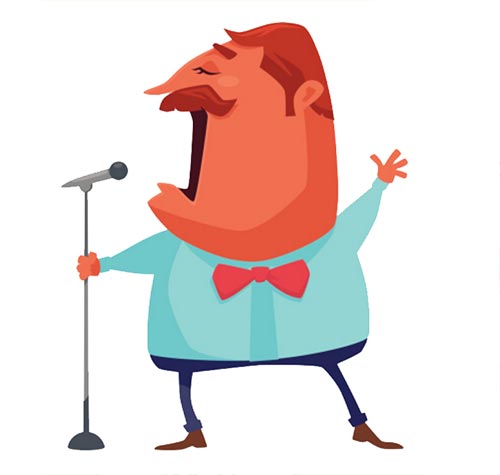swim
To move yourself through water using your arms and legs

شنا کردن
They spent the day swimming and sunbathing.
آنها تمام روز را به شنا کردن و حمام آفتاب گذراندند.
To move yourself through water using your arms and legs

شنا کردن
They spent the day swimming and sunbathing.
آنها تمام روز را به شنا کردن و حمام آفتاب گذراندند.
Oxford Essential Dictionary
swim
verb (swims, swimming, swam /, has swum )
to move your body through water:
Can you swim?
I swam across the lake.
grammar
When you talk about spending time swimming as a sport, you usually say go swimming: I go swimming every day.
Longman Dictionary of Contemporary English
swim
I. swim1 S3 /swɪm/ BrE AmE verb (past tense swam /swæm/, past participle swum /swʌm/, present participle swimming)
[Word Family: noun: ↑swim, ↑swimmer, ↑swimming; verb: ↑swim; adverb: ↑swimmingly]
[Language: Old English; Origin: swimman]
1. MOVE THROUGH WATER [intransitive and transitive] to move yourself through water using your arms and legs
swim in
We swam in the chilly water.
swim around/across etc
She could swim across the lake.
Let’s go swimming this afternoon.
kids learning to swim the backstroke
She was the first woman to swim the Channel.
2. WATER ANIMALS [intransitive always + adverb/preposition] when fish, ducks etc swim, they move around the water using their tails and ↑fins, their feet etc:
Tropical fish swam slowly around in the tank.
3. NOT THINKING/SEEING PROPERLY [intransitive]
a) if your head swims, you start to feel confused or that everything is spinning around:
My head was swimming after looking at that screen all day.
b) if something you are looking at swims, it seems to be moving around, usually because you are ill, tired, or drunk:
The numbers swam before my eyes.
4. be swimming in something to be covered by a lot of liquid:
potatoes swimming in thick gravy
5. swim against the tide/current etc to do or say things which are different from what most people do or say, because you do not mind being different OPP swim with the tide
⇨ sink or swim at ↑sink1(15)
Oxford Advanced Learner's Dictionary
swim
swim [swim swims swam swimming swum] verb, noun [swɪm] [swɪm]
verb (swim·ming, swam [swæm] ; [swæm] swum [swʌm] ; [swʌm] )
1. intransitive, transitive (of a person) to move through water in a horizontal position using the arms and legs
• I can't swim.
• The boys swam across the lake.
• We swam out (= away from land) to the yacht.
• They spent the day swimming and sunbathing.
• ~ sth Can you swim backstroke yet?
• How long will it take her to swim the Channel?
2. intransitive go swimming to spend time swimming for pleasure
• I go swimming twice a week.
3. intransitive (+ adv./prep.) (of a fish, etc.) to move through or across water
• A shoal of fish swam past.
• Ducks were swimming around on the river.
4. intransitive (usually be swimming) to be covered with a lot of liquid
• ~ (in sth) The main course was swimming in oil.
• ~ (with sth) Her eyes were swimming with tears.
5. intransitive (of objects, etc.) to seem to be moving around, especially when you are ill/sick or drunk
• The pages swam before her eyes.
6. intransitive to feel confused and/or as if everything is spinning around
• His head swam and he swayed dizzily.
see sink or swim at sink v.
Verb forms:

Word Origin:
Old English swimman (verb), of Germanic origin; related to Dutch zwemmen and German schwimmen.
Which Word?:
bath / bathe / swim / sunbathe
When you wash yourself you can say that you bath (BrE) or bathe (NAmE), but it is much more common to say have a bath (BrE) or take a bath (NAmE).
You can also bath (BrE) or bathe (NAmE) another person, for example a baby.
You bathe a part of your body, especially to clean a wound.
When you go swimming it is old-fashioned to say that you bathe, and you cannot say that you bath or take a bath. It is more common to swim, go for a swim, have a swim or go swimming: ▪ Let’s go for a quick swim in the pool. ◊ ▪ She goes swimming every morning before breakfast. What you wear for this activity is usually called a swimming costume in BrE and a bathing suit in NAmE.
When you lie in the sun in order to go brown you sunbathe.
Example Bank:
• A beaver swam vigorously upstream.
• A water vole swam vigorously upstream.
• Exhausted, they swam ashore.
• He can't swim well.
• She swam back towards the shore.
• We swam out to the boat.
• swimming across the river
• swimming in the sea
• to swim across the river
• to swim in the sea
Idiom: in the swim
Cambridge Advanced Learner's Dictionary
Cambridge Advanced Learner's Dictionary - 4th Edition
swim / swɪm / verb ( present participle swimming , past tense swam , past participle swum ) (MOVE IN WATER)
swim A1 [ I or T ] to move through water by moving the body or parts of the body:
We spent the day on the beach but it was too cold to go swimming.
Her ambition is to swim (across) the English Channel.
I swam two miles this morning.
be swimming in/with sth disapproving
If food is swimming in/with a liquid, it has too much of that liquid in it or on it:
The salad was swimming in oil.
swim / swɪm / verb ( present participle swimming , past tense swam , past participle swum ) (SEEM TO MOVE)
[ I ] (of an object) to seem to move about:
Getting up too suddenly made the room swim before her eyes.
[ I ] If your head swims, you feel confused and are unable to think or see clearly:
After the second or third drink, my head began to swim.
© Cambridge University Press 2013
Collins COBUILD Advanced Learner’s English Dictionary
swim
/swɪm/
(swims, swimming, swam, swum)
Frequency: The word is one of the 3000 most common words in English.
1.
When you swim, you move through water by making movements with your arms and legs.
She learned to swim when she was really tiny...
I went round to Jonathan’s to see if he wanted to go swimming...
He was rescued only when an exhausted friend swam ashore...
I swim a mile a day.
VERB: V, V, V adv/prep, V amount/n
2.
If you swim a race, you take part in a swimming race.
She swam the 400 metres medley ten seconds slower than she did in 1980.
VERB: V n
3.
If you swim a stretch of water, you keep swimming until you have crossed it.
In 1875, Captain Matthew Webb became the first man to swim the English Channel.
VERB: V n
4.
When a fish swims, it moves through water by moving its body.
The barriers are lethal to fish trying to swim upstream.
VERB: V adv/prep, also V
5.
If objects swim, they seem to be moving backwards and forwards, usually because you are ill.
Alexis suddenly could take no more: he felt too hot, he couldn’t breathe, the room swam.
VERB: V
6.
If your head is swimming, you feel unsteady and slightly ill.
The musty aroma of incense made her head swim.
= spin
VERB: V
Merriam-Webster's Advanced Learner's Dictionary
1swim /ˈswɪm/ verb swims; swam /ˈswæm/; swum /ˈswʌm/; swim·ming
1 a [no obj] : to move through water by moving your arms and legs
• He's teaching the children to swim.
• She swam across the pool.
• I can't swim.
• He swam (for) almost a mile.
- see also swimming
b [+ obj] : to move through or across (an area of water) by swimming
• He swam the English Channel.
c [+ obj] : to swim by using (a specified method)
• The racers must swim the backstroke.
d [no obj] of a fish, bird, etc. : to move through or over water
• We watched the fish swimming in the river.
• Ducks swam in/on the pond.
2 [no obj] : to be completely covered with a liquid - usually used as (be) swimming in
• The potatoes were swimming in butter/gravy.
3 [no obj]
a : to feel dizzy or unable to think clearly because you are sick, confused, etc.
• I felt weak and my head was swimming.
• All the facts and figures he was reciting were starting to make my head swim. [=starting to make me feel confused, unable to think clearly, etc.]
b of something you are looking at : to seem to be moving around because you are tired, sick, etc.
• The room swam before my eyes.
sink or swim
swim with/against the tide








